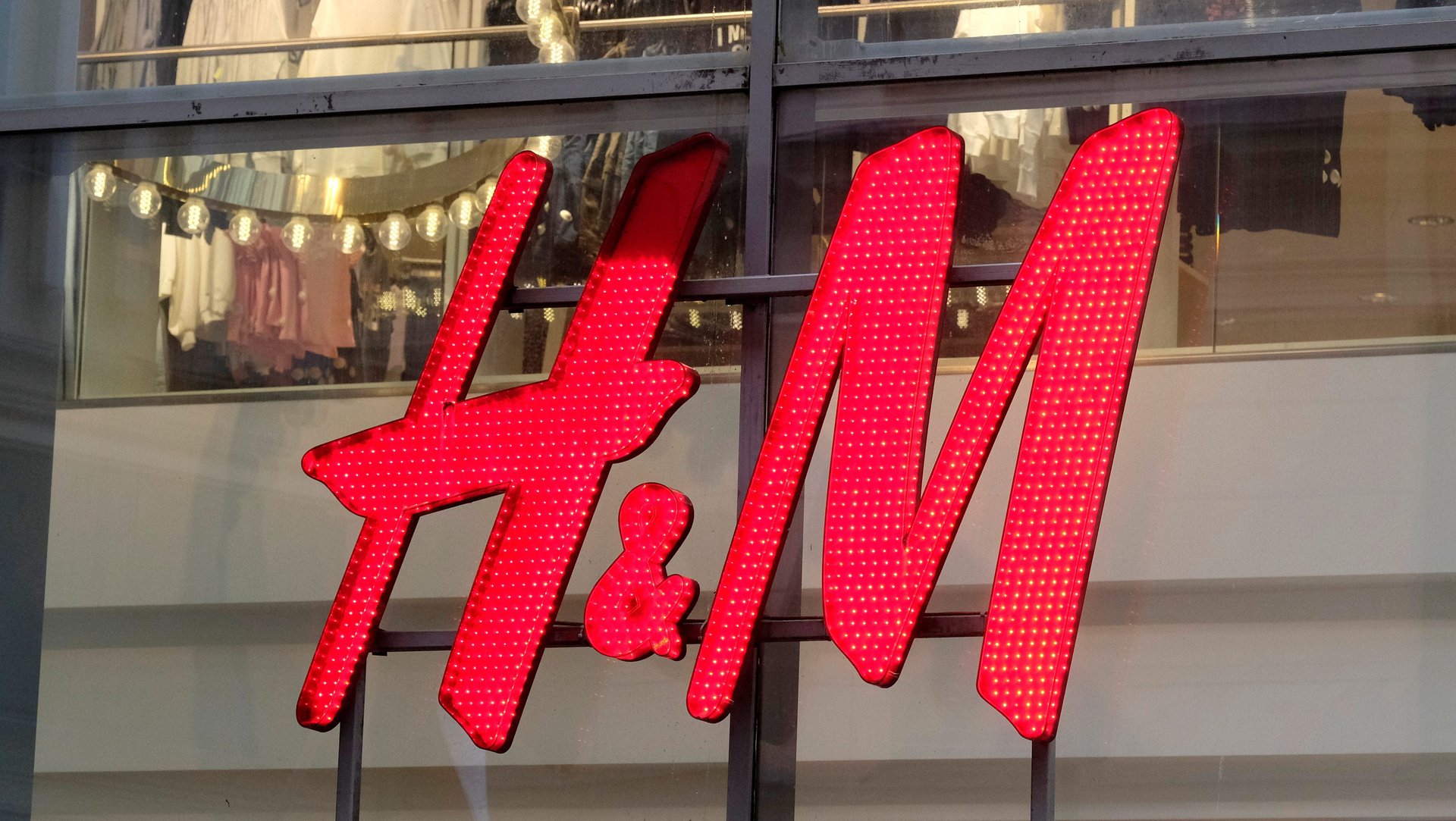Are fast fashion’s giants more vulnerable to coronavirus than other retailers?
While fashion retailers of all sorts watch to see how the global spread of covid-19 will hit their businesses, fast fashion’s two giants—H&M and Inditex, owner of Zara—could be particularly vulnerable, according to an analysis by financial firm UBS.


While fashion retailers of all sorts watch to see how the global spread of covid-19 will hit their businesses, fast fashion’s two giants—H&M and Inditex, owner of Zara—could be particularly vulnerable, according to an analysis by financial firm UBS.
Last month, UBS sent a research note to clients looking at the European retailers at greatest risk from the new strain of coronavirus. Topping the list were H&M, Inditex, and British home-furnishings retailer Dunelm. UBS based its analysis on the company’s share of sales from China, the total value of products it manufactures in the country, and how quickly inventory turns over, weighting each according to its potential impact to produce the index below.
The collected value of products made in China carried the greatest weight, it noted. Covid-19 has forced factory closures all around the country, throwing fashion’s supply chain in the country into disarray. Even as factories reopen, many are working at diminished capacity. For H&M, China accounts for about 50% of the total value of products it sells, according to UBS’s estimate, making it second only to Dunelm in the firm’s analysis.
Looking at total value, rather than just the percentage of items, from the country is important. Fashion retailers such as H&M often produce their higher-cost items in China, where factories have long developed skill at sewing more complex products such as jackets, while making basic low-cost garments such as t-shirts elsewhere. More products overall might come from other countries, but if you look at inventory in terms of the cost of the items hanging in stores, the balance changes.
Inditex, on the other hand, sourced just 10% of its total value of goods from China, but it had one of the highest rates of inventory turnover, which might normally be an advantage but in this situation could prove a liability. Its largest brand, Zara, can turn a design into a finished product faster than much of the competition and keeps new items streaming into stores. But this also means Zara relies on its supply chain to constantly feed it. In its note, UBS said it believes retailers with high stock turnover “are likely to be impacted sooner than those with low stock turn.” (H&M has relatively lower stock turnover that Zara).
UBS also estimated Inditex had the highest share of sales from China at 8.7%, with H&M trailing just behind at 6.1%.
It’s difficult to predict the outbreak’s impact, as UBS itself noted, because the situation in China continues to change. Indeed, H&M has so far said it’s seen no delays in its supply chain related to the outbreak.
In fact, China’s status as the world’s biggest textile producer makes it hard to gauge Covid-19’s effect on a company’s supply chain just by looking within China. The country supplies many of the raw materials to garment makers around the world. Sports brands are possibly most at risk, since they have fewer alternatives for the technical fabrics and other materials they use for their products. Meanwhile, factories in Cambodia and Myanmar have warned they could shut down if the supply of raw materials from China doesn’t pick up soon.